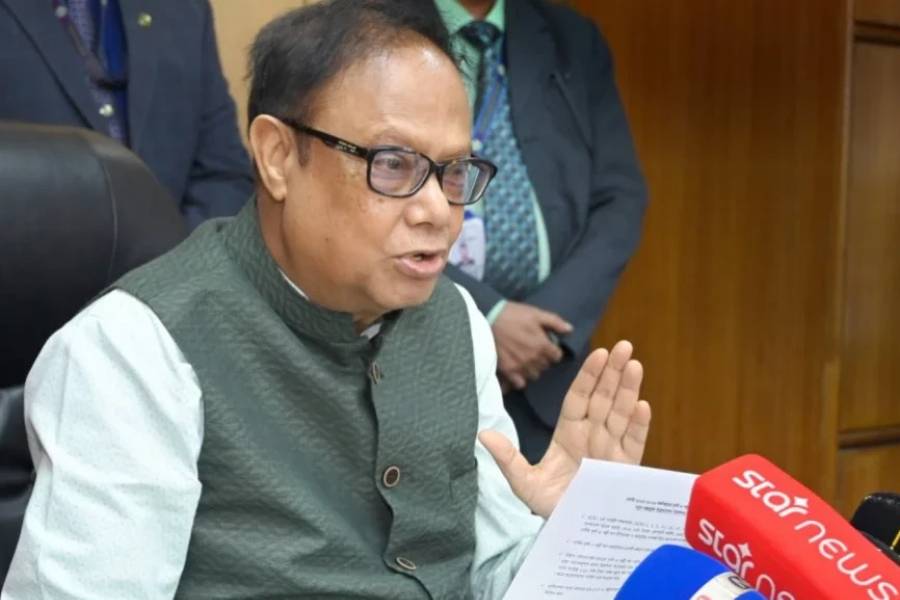

Bangladesh Bank (BB) Governor Ahsan H. Mansur has been awarded a ‘C’ grade in the 2025 assessment by the international financial magazine, Global Finance.
This grading signifies that the central bank’s performance under his leadership has been classified as ‘mixed’ by the publication, reports UNB.
In the recently released ‘Central Banker Report Card 2025’ by Global Finance, it was noted that the Bangladesh Bank achieved average results across four key indicators: inflation control, economic growth achievement, currency stability, and policy credibility.
The ‘C’ grade, according to economists, implies that while the central bank’s policy direction is correct, tangible results of these changes are not yet fully visible. The central bank remains under intense scrutiny as inflation, loan irregularities, and volatility in the dollar market have yet to be brought under control.
For context, Sri Lanka’s Governor Nandalal Weerasinghe received an ‘A’ grade, and Vietnam’s Governor Nguyen Thi Hong received the highest ‘A+’ grade in the same report.
The current ‘C’ grade is a marginal improvement from the ‘D’ grade received by former Governor Abdur Rouf Talukder in the 2023 assessment. However, Global Finance commented that the central bank’s position, while slightly better under Mansur, has not yet reached the desired level.
Dr. Mansur took over as Governor on August 5, 2024, following a change in government. He assumed the role during a period of significant economic turmoil, marked by political instability, financial sector irregularities, a crisis in foreign currency reserves, and high inflation.
Soon after taking charge, he raised the repo rate from 8.5 percent to 10 percent in an effort to control inflation. While this had some impact, it also contributed to a decline in growth, with GDP falling to 3.9 percent in the 2025 fiscal year—well below the average of 6 percent seen in the last decade.
Under his leadership, the Bangladesh Bank initiated a three-year financial sector reform program with the support of the IMF. This program aims to reduce non-performing loans (NPLs), update bankruptcy laws, and increase accountability in bank operations. However, the report indicates that practical progress on implementation has been slow.
Global Finance concluded in its report, “While Ahsan H. Mansur’s policy direction is reasonable, the pace of implementation is slow; as a result, public confidence has not been fully restored.”


 For all latest news, follow The Financial Express Google News channel.
For all latest news, follow The Financial Express Google News channel.